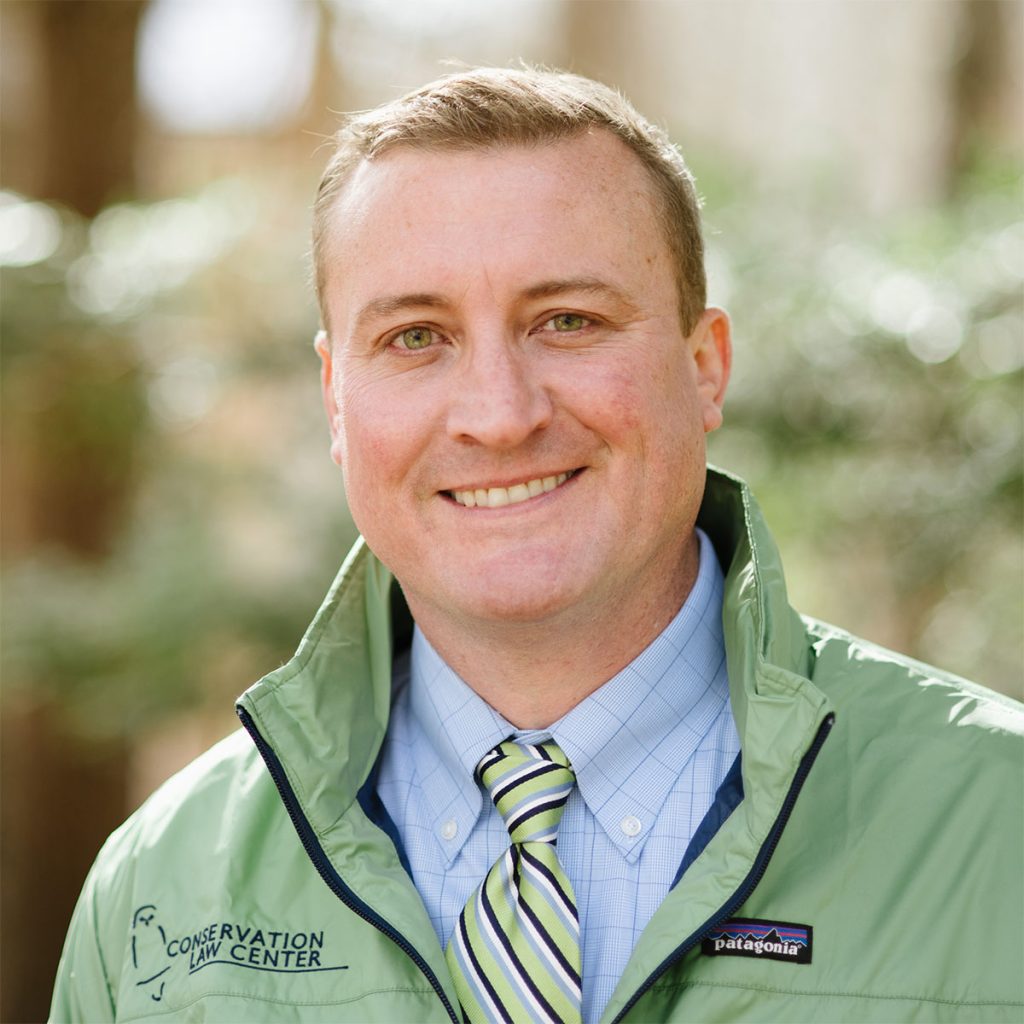New Community-Centered Conservation Program
The Environmental Legal Aid Program was founded this year under the guidance of Managing Attorney, Kim Ferraro, and Senior Attorney, Michael Zoeller. This program serves local residents working to conserve their natural environment and improve northern Lake County as a sustainable habitat for all.
Now 11 CLC staff members
CLC continues to grow to meet increasing needs. This year, we welcomed three new staff members: Raenah Bailey, the Midwest Climate Resilience Specialist, and Ben Taylor, our RCPP Coordinator are valuable additions to our Southern Indiana Sentinel Landscape team, and Michael Zoeller, our new Senior Attorney, is leading our Environmental Legal Aid Program.
Protecting the Public Trust
CLC is representing Save the Dunes in a legal challenge to a DNR issued permit that allows the Town of Ogden Dunes to build a half-mile, ten-foot-wide, armor stone revetment along the Lake Michigan shoreline. If built, the stone wall would privatize that stretch of beach in violation of the public trust and cause further erosion of the natural shoreline with devastating effects on the surrounding Indiana Dunes National Park
Legal land conservation tool
This year, CLC created three conservation easement templates and have made them available to all Indiana land trusts. These include one conservation easement for protecting natural habitat, one for working forests, and another for agricultural land. Providing land trusts this important tool helps them execute conservation easements in Indiana that are up to date with the most current guidelines for federal tax deductibility.
Habitat Protected
CLC assisted the Macaw Recovery Network on its first land purchase, the 513-acre Sarapiqui Rainforest Reserve.
This land in Costa Rica lies in the heart of Great Green Macaw breeding grounds and will provide critical habitat for the threatened Great Green Macaw and all forest wildlife that share its habitat.
USDA funding to support private land conservation
The USDA Natural Resources Conservation Service has awarded the Southern Indiana Sentinel Landscape a $25 million Regional Conservation Partnership Program (RCPP) grant to support private landowners with technical and financial assistance.
Over the next five years, the grant will help conserve southern Indiana’s farms and forests by permanently protecting and restoring over 2,500 acres of forestland through conservation easements, restoring 5,000 to 10,000 acres of oak-hickory forest ecosystems, and promoting sustainable farming practices across tens of thousands of acres.
Strategic Plan for SISL
The SISL Partnership developed two versions of this strategic plan: a concise version and a full-length technical version. The plan establishes the partnership’s foundation, goals, strategies, and actions to guide its strategic direction over the next three years. It also serves to engage new partners, educate the public about the Southern Indiana Sentinel Landscape, and gain support from local, state, and federal officials.
Fighting against coal ash pollution
CLC is representing the Hoosier Environmental Council in a legal challenge to a Clean Water Act permit that allows the AES-owned powerplant, Eagle Valley, to sidestep federal requirements for the disposal of coal ash waste. Instead of requiring AES to clean up its mess, IDEM issued a CWA permit that allows the utility to pump the contaminated groundwater out of the ground and then discharge it, untreated directly into the White River.
Important water policy proposals drafted
CLC has drafted five policy proposals focused on PFAS regulation, wetland protection, and the establishment of an Indiana Water Authority. These policies aim to provide guidance as to different ways the Indiana legislature can solve some of the most pressing water quality and water planning challenges our state faces
New website
CLC has launched a dynamic new website that provides an extensive array of information and resources. This revamped platform showcases all our cases, matters, and projects, offering visitors detailed insights into our ongoing work. The website is designed to be user-friendly, allowing individuals to explore our initiatives, learn about our mission, and stay updated on our latest efforts.
Letter from the Director
In his 1949 essay, “Thinking Like a Mountain,” Aldo Leopold described an event in which he and others shot and killed a family of wolves in the wilderness. Wolves were considered vermin, dangerous to livestock and livelihoods, and as a young wildlife biologist, Leopold shared the widespread belief that less wolves meant more elk and deer for hunting. Leopold recalled the fierce green fire fading from the mother’s eyes as she died, a heartbreaking metaphor. The experience changed his relationship with nature permanently. He realized that the continued belief in humans as conquerors of nature would ultimately have existential consequences, as we see happening all around us today.
Our understanding of natural systems has evolved tremendously since Leopold witnessed the fading green fire of the dying wolf’s eyes, though not as much as it must for us to reach a sustainable relationship between our species and the rest. On the one hand, we still seem to believe that nature exists to serve our needs. We’re appalled when it’s beyond our control. On the other hand, we know now more than ever about the interconnectedness of living things, about the need for soil to be healthy, about the importance of clean water for drinking and economy, about the countless benefits of wetlands for drought and flood control as well as wildlife habitat, and about the benefits of healthy forests for human physical and mental health. So many things once thought inconceivable. But the knowledge hasn’t translated into the change we need.
What to do?!
As you’ll read in this year’s Annual Report, the Conservation Law Center approaches that question simply. We push the rock up the hill every single day, no matter how many times it rolls back down. We use the law to fight injustice. We help frontline groups save land and protect water. We use the legal toolbox to make sure everyone has equal access to nature. We build relationships with partners, and supporters like you, to enable the hard work that needs to be done. We slay dragons.
On behalf of all of us, thank you for being part of the solution.



